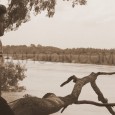On the segregation of knowledge in modern education
“I was a revolutionary when I was young and all my prayer to God was: ‘Lord, give me the energy to change the world.’ ”
“As I approached middle age and realized that half my life was gone without my changing a soul, I changed my prayer to: ‘Lord, give me the grace to change all those who came in contact with me. Just my family and friends, and I shall be content.’ ”
“Now that I am an old man and my days are numbered, my one prayer is: ‘Lord, give me the grace to change myself.’ If I had prayed for this right from the start I should not have wasted my life.”
We live in an age of specialization. Doctors are masters of health and engineers are experts of geometry. The clergy are well-versed with the dictates of the Creed. The saints are absorbed in the stages of the soul. While this approach has given birth to some skill-polishing for each, it has also blinded the same specialists from the other coast of the ocean of knowledge.
Coupled with this blindness comes the indifferent attitude of one towards the other. Each boycotts the others’ knowledge and belittles the methodology sought to seek it.
However, I want to set a different tone by indulging in this note.
It would come as no surprise for you that the above quote, from its vocabulary, is of a saint who is concluding the bottom line of his quest for His Lord. But the point of interest is that this quote by Bayazid Bastami appeared as the opening quote of a psychology text book taught in CBSE Indian schools.
I will describe the reasons for my fascination.
1. Bayazid Bastami, the controversial sufi master, was born in 804 CE at Bastam, Iran. Neither in terms of time nor space do these words stand a chance of appearing in the XI-class textbook. Bastami did not live in the recent history to be quoted in the textbook of the modern science of mind. He was born in Iran and not on the Indian soil.
2. Most importantly he was not a psychologist. He was not the one who spoke through empirically proven facts. Why would he be chosen to risk the objective nature of this science?
3. Not to forget that this textbook is supervised by scholars who are in no way connected with belief system of the Sufi saint. The text book committee members include Chief advisor R.C Tripathi, Professor & Director, G.B Pant Social Science Institute, Jhusi, Allahabad, Ak Mohanty, prof, Zakir Hussain Centre for Educational Studies, SSS II, JNU, Delhi, Ak Srivastava, B.D Tiwari, dept of psychology, Mahatma Gandhi Kashi.
I am sure the Text book committee was right in their selection of the quote of this saint who first wanted to change the world and in the end wanted to change his own self. The ultimate aim of knowledge should be to change one’s own self. It would be a sad irony if a doctor could treat the whole neighborhood and not himself. The same applies for all professions.
With this quote, the academic body has smashed the idol of knowledge segregation. And the life and words of Bayazid Bastami has become fruitful in this direction.
We have yet another aspect of knowledge to seek from the saint of Bastam. He never considered himself an aged scholar, albeit he deserved to be. He was always young at heart and considered himself to be a learner even in his last days in whatever his area of knowledge. Before he died, someone asked him his age. He said: “I am four years old. For seventy years I was veiled. I got rid of my veils only four years ago.”
May 06 2010




2 comments
please study more about islamic revolution
thank you for a heart touching note on Bistami. i will expect more articles of this kind